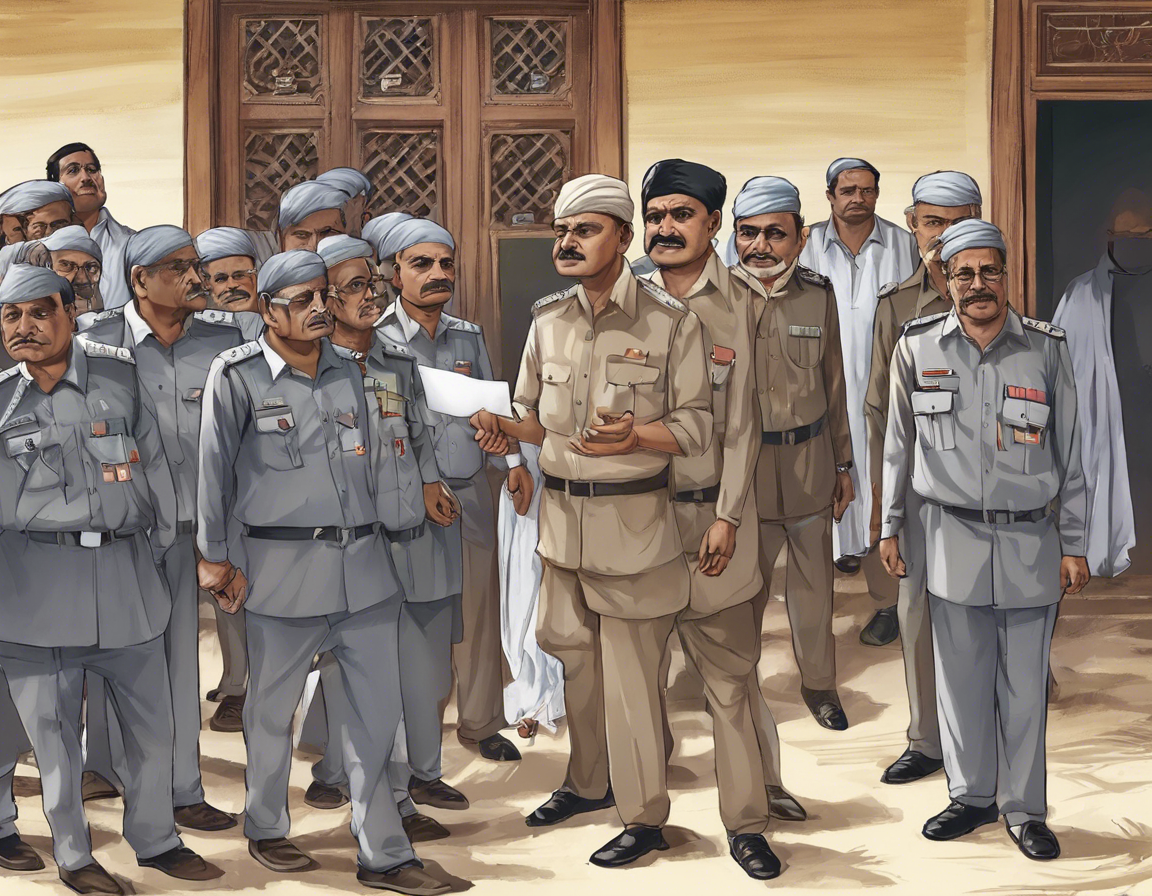India's Anti-Defection Law is a crucial aspect of the country's political landscape, aimed at ensuring stable governance and preventing elected repres
India’s Anti-Defection Law is a crucial aspect of the country’s political landscape, aimed at ensuring stable governance and preventing elected representatives from switching parties for personal gain. Enacted in 1985 as the Tenth Schedule to the Indian Constitution, the law has undergone several amendments to address loopholes and challenges. Understanding the intricacies of this law is essential for comprehending the dynamics of Indian politics. In this comprehensive guide, we delve into the details of India’s Anti-Defection Law, its significance, implications, and recent developments.
Overview of India’s Anti-Defection Law
The Anti-Defection Law was introduced to combat the issue of lawmakers frequently changing parties, leading to political instability. The law seeks to enforce party discipline and ensure that representatives adhere to the mandate of the political party they were initially elected to represent.
Key Provisions of the Anti-Defection Law
-
Definition of Defection: The law defines defection as voluntarily giving up the membership of a political party or voting against the directives issued by the party.
-
Disqualification of Defectors: Elected representatives who defect are disqualified from holding office. This applies to both members of Parliament and state legislatures.
-
Exceptions to Defection: The law allows for certain exceptions, such as when two-thirds of the members of a party agree to a merger with another party.
Implications of the Anti-Defection Law
The Anti-Defection Law has significant implications for the functioning of the Indian political system:
-
Stability: By discouraging party-hopping, the law aims to promote stable governance and prevent frequent changes in power.
-
Party Discipline: Political parties can enforce discipline among their members, ensuring that representatives do not act against the party’s interests.
-
Accountability: Representatives are held accountable for their actions, and voters can have confidence that their elected officials will uphold the party’s manifesto.
Challenges and Controversies Surrounding the Anti-Defection Law
While the Anti-Defection Law serves a vital purpose in Indian politics, it has also faced criticisms and controversies:
-
Misuse: Some argue that the law has been misused by political parties to curb dissent and stifle independent voices within the legislature.
-
Judicial Activism: The involvement of the judiciary in interpreting and enforcing the law has raised questions about the separation of powers and the autonomy of the legislative branch.
-
Complexity: The intricacies of the law, including provisions for mergers and splits, have sometimes led to confusion and legal disputes.
Recent Developments and Amendments
Over the years, the Anti-Defection Law has evolved through amendments and judicial interpretations to address its shortcomings and adapt to changing political dynamics:
-
Ninth Schedule: The law was amended in 2003 to include the Ninth Schedule, which provides immunity to certain laws from judicial review, including the Anti-Defection Law.
-
Supreme Court Rulings: The Supreme Court has issued several landmark judgments clarifying the scope and application of the law, such as in the cases of Ravi Naik v. Union of India and Kihoto Hollohan v. Zachillhu.
-
Proposed Reforms: There have been calls for further reforms to make the law more effective and reduce loopholes that allow for its misuse.
Frequently Asked Questions (FAQs)
- What is the punishment for defection under the Anti-Defection Law?
-
Elected representatives found guilty of defection are disqualified from holding office.
-
Can a member be disqualified for abstaining from voting?
-
Abstaining from voting, if against the party’s directives, can also be considered as defection under the law.
-
Are there any exceptions to defection under the Anti-Defection Law?
-
Yes, exceptions include instances of mergers between political parties with the consent of two-thirds of the members.
-
Can a member be disqualified for expressing dissent within the party?
-
Mere expression of dissent within the party typically does not qualify as defection unless it involves actions such as voting against the party whip.
-
How does the Anti-Defection Law impact coalition governments?
-
The law applies to members of coalition parties as well, requiring them to adhere to the coalition’s agreed-upon stance on legislative matters.
-
Are there any provisions for appeal against disqualification under the Anti-Defection Law?
-
Elected representatives have the right to challenge their disqualification in the courts, arguing against the validity of the disqualification.
-
Does the Anti-Defection Law apply to independent candidates?
-
Independent candidates are not bound by party discipline, so the Anti-Defection Law typically does not apply to them unless they join a party after being elected.
-
What role does the Speaker play in cases of defection?
-
The Speaker of the House is responsible for deciding on cases of disqualification under the Anti-Defection Law, a role that has sometimes been criticized for being politically influenced.
-
Can a political party expel a member without invoking the Anti-Defection Law?
-
Yes, parties have the right to expel members based on their internal disciplinary processes, which may not necessarily invoke the Anti-Defection Law.
-
How has the Anti-Defection Law impacted Indian politics since its enactment?
- The law has had a significant impact on reducing party-hopping and promoting stability, but it has also raised concerns about stifling dissent and undermining democratic principles.
In conclusion, India’s Anti-Defection Law is a critical component of the country’s democratic framework, aimed at fostering stable governance and upholding party discipline. While the law has its advantages in ensuring political accountability, its implementation and interpretation have raised challenges and controversies. As Indian politics continues to evolve, the Anti-Defection Law will likely undergo further refinements to balance the need for stability with the principles of democracy and dissent.

COMMENTS